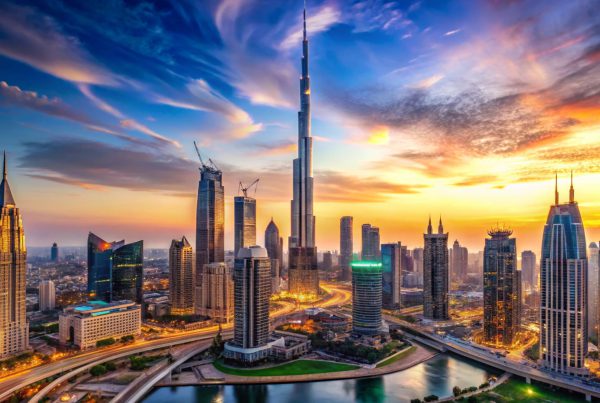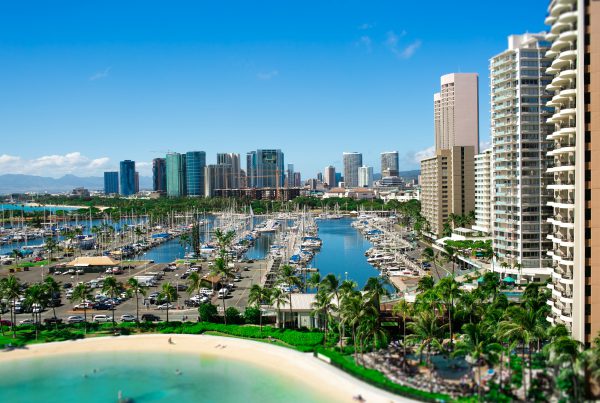The holy month of Ramadan in UAE is regarded as the holiest and most sacred month of the Islamic Hijri (Lunar) Calendar. Muslims sincerely believe that during this holy month the archangel Gabriel descended from the heaven and conveyed the message to the Prophet Muhammad.
Ramadan is the ninth month of Islamic calendar, and it takes place for 720 Hours, four weeks and two days during which Muslims are expected to increase their level of physical and spiritual subordination to God by fasting. However, the timing of fasting during Ramadan varies each year due to the Islamic calendar’s reliance on the lunar cycle, consequently, its start and end date hinge upon the sighting of the crescent moon.
Iftar and Ramadan Prayer Times in UAE, 2024
Muslims residing in Abu Dhabi, Dubai, Sharjah, Ajman, Umm Al-Quwain, and Fujairah will start observing Ramadan with the Sehri (pre-dawn meal) and Iftar (breaking of fast) times in Dubai. This is one of the primary reasons that the UAE places so much importance on the beginning of Ramadan. The entire schedule for Ramadan in UAE and the Dubai in 2024 is shown below.
| Ramadan | Weekday | Month | Imsak | Fajr | Sunrise | Dhuhr | Asr | Iftar | Isha |
| 1 | Monday | 11-03-2024 | 5:05 AM | 5:15 AM | 6:29 AM | 12:32 PM | 3:54 PM | 6:29 PM | 7:43 PM |
| 2 | Tuesday | 12-03-2024 | 5:04 AM | 5:14 AM | 6:28 AM | 12:31 PM | 3:54 PM | 6:30 PM | 7:43 PM |
| 3 | Wednesday | 13-03-2024 | 5:03 AM | 5:13 AM | 6:27 AM | 12:31 PM | 3:54 PM | 6:30 PM | 7:44 PM |
| 4 | Thursday | 14-03-2024 | 5:02 AM | 5:12 AM | 6:26 AM | 12:31 PM | 3:54 PM | 6:31 PM | 7:44 PM |
| 5 | Friday | 15-03-2024 | 5:01 AM | 5:11 AM | 6:25 AM | 12:31 PM | 3:54 PM | 6:31 PM | 7:45 PM |
| 6 | Saturday | 16-03-2024 | 5:00 AM | 5:10 AM | 6:24 AM | 12:30 PM | 3:54 PM | 6:31 PM | 7:45 PM |
| 7 | Sunday | 17-03-2024 | 4:59 AM | 5:09 AM | 6:23 AM | 12:30 PM | 3:54 PM | 6:32 PM | 7:46 PM |
| 8 | Monday | 18-03-2024 | 4:58 AM | 5:08 AM | 6:21 AM | 12:30 PM | 3:54 PM | 6:32 PM | 7:46 PM |
| 9 | Tuesday | 19-03-2024 | 4:57 AM | 5:07 AM | 6:20 AM | 12:29 PM | 3:54 PM | 6:33 PM | 7:47 PM |
| 10 | Wednesday | 20-03-2024 | 4:56 AM | 5:06 AM | 6:19 AM | 12:29 PM | 3:54 PM | 6:33 PM | 7:47 PM |
| 11 | Thursday | 21-03-2024 | 4:55 AM | 5:05 AM | 6:18 AM | 12:29 PM | 3:53 PM | 6:34 PM | 7:48 PM |
| 12 | Friday | 22-03-2024 | 4:54 AM | 5:04 AM | 6:17 AM | 12:29 PM | 3:53 PM | 6:34 PM | 7:48 PM |
| 13 | Saturday | 23-03-2024 | 4:52 AM | 5:02 AM | 6:16 AM | 12:28 PM | 3:53 PM | 6:35 PM | 7:49 PM |
| 14 | Sunday | 24-03-2024 | 4:51 AM | 5:01 AM | 6:15 AM | 12:28 PM | 3:53 PM | 6:35 PM | 7:49 PM |
| 15 | Monday | 25-03-2024 | 4:50 AM | 5:00 AM | 6:14 AM | 12:28 PM | 3:53 PM | 6:35 PM | 7:50 PM |
| 16 | Tuesday | 26-03-2024 | 4:49 AM | 4:59 AM | 6:13 AM | 12:27 PM | 3:53 PM | 6:36 PM | 7:50 PM |
| 17 | Wednesday | 27-03-2024 | 4:48 AM | 4:58 AM | 6:12 AM | 12:27 PM | 3:53 PM | 6:36 PM | 7:51 PM |
| 18 | Thursday | 28-03-2024 | 4:47 AM | 4:57 AM | 6:11 AM | 12:27 PM | 3:53 PM | 6:37 PM | 7:51 PM |
| 19 | Friday | 29-03-2024 | 4:46 AM | 4:56 AM | 6:10 AM | 12:26 PM | 3:53 PM | 6:37 PM | 7:52 PM |
| 20 | Saturday | 30-03-2024 | 4:45 AM | 4:55 AM | 6:09 AM | 12:26 PM | 3:52 PM | 6:38 PM | 7:52 PM |
| 21 | Sunday | 31/04/2024 | 4:44 AM | 4:54 AM | 6:08 AM | 12:26 PM | 3:52 PM | 6:38 PM | 7:53 PM |
| 22 | Monday | 01-04-2024 | 4:42 AM | 4:52 AM | 6:07 AM | 12:26 PM | 3:52 PM | 6:39 PM | 7:53 PM |
| 23 | Tuesday | 02-04-2024 | 4:41 AM | 4:51 AM | 6:06 AM | 12:25 PM | 3:52 PM | 6:39 PM | 7:54 PM |
| 24 | Wednesday | 03-04-2024 | 4:40 AM | 4:50 AM | 6:05 AM | 12:25 PM | 3:52 PM | 6:39 PM | 7:54 PM |
| 25 | Thursday | 04-04-2024 | 4:39 AM | 4:49 AM | 6:04 AM | 12:25 PM | 3:52 PM | 6:40 PM | 7:55 PM |
| 26 | Friday | 05-04-2024 | 4:38 AM | 4:48 AM | 6:03 AM | 12:24 PM | 3:51 PM | 6:40 PM | 7:55 PM |
| 27 | Saturday | 06-04-2024 | 4:37 AM | 4:47 AM | 6:02 AM | 12:24 PM | 3:51 PM | 6:41 PM | 7:56 PM |
| 28 | Sunday | 07-04-2024 | 4:36 AM | 4:46 AM | 6:01 AM | 12:24 PM | 3:51 PM | 6:41 PM | 7:57 PM |
| 29 | Monday | 08-04-2024 | 4:35 AM | 4:45 AM | 6:00 AM | 12:24 PM | 3:51 PM | 6:42 PM | 7:57 PM |
| 30 | Tuesday | 09-04-2024 | 4:33 AM | 4:43 AM | 5:59 AM | 12:23 PM | 3:51 PM | 6:42 PM | 7:58 PM |
How to Celebrate Ramadan Traditionally
Fasting:
Ramadan stands as a distinct tradition uniting Muslims worldwide, with fasting serving as one of the fundamental pillars of Islam. Throughout this sacred month, Muslims keep fast from dawn until sunset; which means they are not allowed to eat, drink, smoke, or have intimate relationships with their spouses from the break of the dawn until the sun sets. They break their fast with a meal, which is known as iftar, and another before dawn, which is called suhoor.
Iftar is a significant family affair, where loved ones gather to share in the breaking of the fast, often starting with dates, apricots, water, or sweetened milk before indulging in a hearty feast.
While fasting is obligatory for most, exemptions exist for travelers, menstruating individuals, the sick, pregnant or nursing women, and young children. Yet, some Muslims, despite these allowances, still choose to observe the fast.
Reciting The Quran:
Apart from fasting, a few other traditions during Ramadan include reading the Quran at least once as relationship with God (Allah) is an important part of this holy month. However, there are many Muslims who also pray five times a day during Ramadan, to focus on their spirituality. Mosques in majority of the Muslim countries can be seen little bit busier during Ramadan.
Sharing Gifts:
Families also share presents during Ramadan, which can include leather-bound Qurans and trays made of colorful wood. Families are also urged to do charity, which is very important to Muslims, particularly in the month of Ramadan. Many families might be seen giving to charities or supporting their community in whatever manner they can throughout Ramadan.
When is Ramadan EID in 2024?
There has always been a certain sense of mystery and reflection surrounding the start of Ramadan. Religious authorities and scholars have historically used the night cover to monitor observations connected to the moon’s appearance and cycle to establish the precise start of each month.
It’s worth noting that because of the moon’s cycle, the start date of Ramadan differs between countries, usually by just a day. Therefore, the exact commencement of Ramadan 2024 depends largely on your geographical location.
Last 10 Days of Ramadan (Laylat al-Qadr)
The Night of Destiny (Laylat al-Qadr) is expected to occur on April 5. This night holds profound significance as the holiest and most blessed throughout the year for Muslims.
Believers of Islam hold the firm conviction that during Laylat al-Qadr, Allah pardons the sins of the devout. Consequently, they endeavor to remain awake throughout the night, engaging in prayer and studying the Quran, seeking forgiveness and divine blessings.
Laylat al-Qadr typically falls within the last 10 days of Ramadan and is commonly believed to take place on an odd-numbered night.
Things Muslims Should Refrain from During Ramadan
During Ramadan, the main emphasis is on spiritual development, devotion, and worship. Muslims are encouraged to steer clear of any worldly activities that may distract them from their devotion to Allah. Following are the activities that should be avoided throughout the month of Ramadan.
- Abstaining from eating and drinking: From dawn (Fajr) until sunset (Maghrib), Muslims are expected to refrain from consuming any food or beverages, including water, coffee, and chewing gum, as part of their fasting practice.
- Smoking: Smoking Tobacco products is prohibited during Ramadan as it contradicts the principles of self-discipline and purification that define this sacred period.
- Temporarily Abstaining from Sexual Intimacy: While married couples are encouraged to abstain from having sexual relations during daylight hours, such intimacy is permissible after breaking the fast in the evening.
- Upholding Good Conduct: Muslims are advised to maintain a demeanor of kindness and respect, and refrain from using foul languages, arguments, or any form of negative behavior.
- Avoiding Gossip and Backbiting: Engaging in gossip or speaking ill of others contradicts the ethos of Ramadan, and thus, Muslims are urged to refrain from such practices during this sacred month.
Why Muslims Celebrate Ramadan?
Ramadan holds a special place in the Islamic calendar as it is believed that this is the month when the Quran, Islam’s holy scripture has been revealed to Prophet Muhammad by the Holy Spirit, known as the angel Gabriel. This sacred period marks the descent of the Quran from the highest heavens to the lowest, being prepared for gradual revelation.
Prophet Muhammad conveyed to his followers that during Ramadan, the gates of heaven stand open while those of hell remain closed, signifying a time of divine mercy and forgiveness.
Fasting during Ramadan is a fundamental practice observed by Muslims worldwide. Beyond its spiritual significance, fasting offers a shared experience of hunger, fostering empathy and solidarity among individuals from diverse social backgrounds. This communal act is believed to bridge gaps between social classes and cultivate compassion towards those facing hardship.
Ramadan in UAE
As per the Islamic Hijri calendar, Ramadan and Eid Al Fitr 2024 in the UAE begins on 11 March 2024, followed by the Islamic festival Eid Al Fitr, which will likely fall on 10 April.
Fasting Hours in Dubai and the UAE
In previous Ramadans, Emiratis typically fasted for approximately 14 hours each day. However, according to the National Centre of Meteorology (NCM), fasting hours are expected to extend gradually throughout the month. At the beginning of Ramadan, fasting will last around 13 hours and 40 minutes, gradually increasing to about 14 hours and 20 minutes by the end of the month.
In terms of weather, average temperatures are forecasted to range from 20°C to 27°C, with maximum temperatures potentially reaching 34.3°C.
Life in Dubai and the UAE During Ramadan
During Ramadan, working hours are typically reduced in Dubai and across the UAE, resulting in a noticeable slowdown in daily life. Many residents opt to retreat from the intense heat, seeking respite indoors. However, hotels and restaurants continue to operate as usual, with hotels often providing enticing deals and promotions. This presents a welcome opportunity for locals to indulge in staycations and enjoy the offerings of their city.
Some Rules to Follow in Dubai and the UAE
Dubai, renowned as an international city, celebrates diversity and respects the customs of its multicultural population. Non-Muslim visitors here are free to eat and drink privately during Ramadan without restrictions. However, it’s considered courteous to avoid eating, drinking, chewing gum, or smoking in public spaces during this time.
Furthermore, when exploring the city or visiting attractions, it’s advisable to dress modestly out of respect for local customs. While swimwear is appropriate by the pool or at hotels, opting for modest attire when shopping or sightseeing is encouraged.










